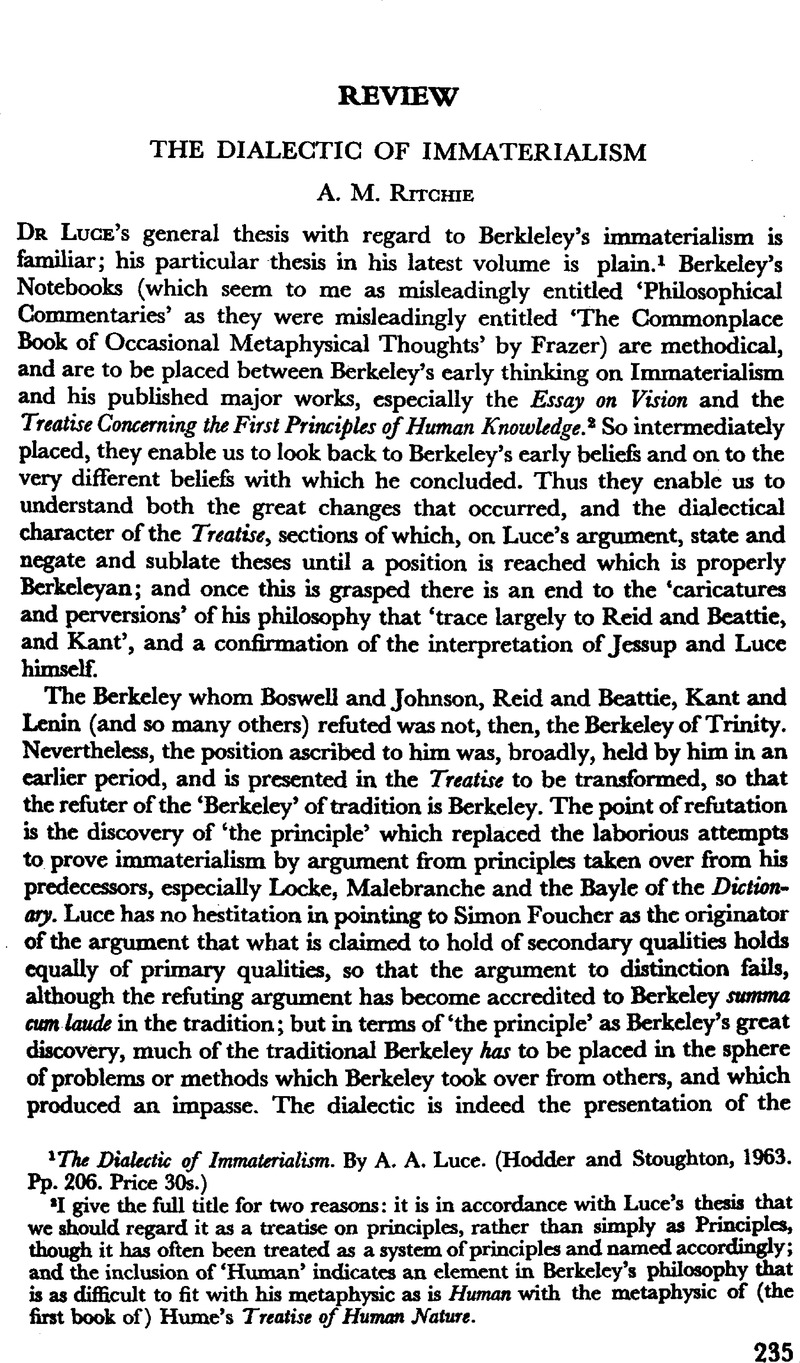No CrossRef data available.
Article contents
The Dialectic of Immaterialism
Published online by Cambridge University Press: 25 February 2009
Abstract

- Type
- Review
- Information
- Copyright
- Copyright © The Royal Institute of Philosophy 1965
References
1 I give the full title for two reasons: it is in accordance with Luce's thesis that we should regard it as a treatise on principles, rather than simply as Principles, though it has often been treated as a system of principles and named accordingly; and the inclusion of ‘Human’ indicates an element in Berkeley’s philosophy that is as difficult to fit with his metaphysic as is Human with the metaphysic of (the first book of) Hume's Treatise of Human Nature.Google Scholar
2 On page 179, after discussing No. 590, which rejects intervals of death or annihilation on the ground that each Person's time is measured to him by his own ideas, i.e. for consciousness there can be no gaps even if there are gaps, times without awareness of anything, Luce says of No. 280, ‘A perception cannot exist without a thing to perceive it’, that ‘a thing to perceive it is exactly a faculty’. But this is sheer error, however traditional, and the error is made obvious by the explanation of a faculty as ‘a thing designed and disposed to do what we are not always doing, like writing or lecturing’.Google Scholar


